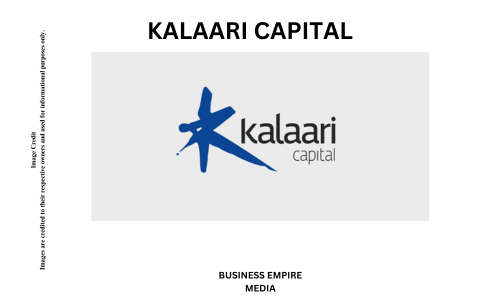Venture capitalists (VCs) play a crucial role in the startup ecosystem, providing the necessary funding and mentorship that can turn innovative ideas into successful businesses. India has emerged as a hotbed for startups, and with this rise, several venture capitalists have gained prominence for their significant contributions to the growth of the industry.
Here’s a look at some of the top 7 venture capitalists in India:
1. Sequoia Capital India

Introduction:
Sequoia Capital India, a branch of the renowned global venture capital firm Sequoia Capital, has been a dominant force in the Indian startup ecosystem since its inception in 2000. With a strong reputation for identifying and nurturing high-potential startups, Sequoia India has played a pivotal role in the growth of numerous industry giants. The firm’s mission is to help daring founders build legendary companies, offering not just capital but also strategic guidance, operational expertise, and a vast network of resources.
Top Investments:
Sequoia Capital India has an impressive track record of investments in some of the most successful and well-known startups in the country. Notable companies in its portfolio include:
- Byju’s: The leading edtech company in India and one of the world’s largest online education platforms.
- OYO: A global hospitality chain that started in India and has since expanded to multiple countries.
- Zomato: A major player in the online food delivery and restaurant discovery space.
- Freshworks: A SaaS company that provides innovative software solutions for customer engagement.
- Unacademy: A rapidly growing edtech platform that offers online courses for a wide range of competitive exams.
Focused Areas:
Sequoia Capital India focuses on several key sectors, including:
- Technology: Startups that leverage cutting-edge technologies to disrupt traditional industries.
- Consumer: Companies that cater to the evolving needs of the Indian consumer, including e-commerce, food delivery, and consumer brands.
- Healthcare: Startups offering innovative solutions in healthcare delivery, medical devices, and pharmaceuticals.
- Financial Services: Fintech companies that are transforming financial services in India, including digital payments, lending, and insurance.
Key Members:
Sequoia Capital India’s leadership team comprises experienced professionals with deep industry knowledge and a strong track record in venture capital. Some of the key members include:
- Shailendra Singh: Managing Director, known for his extensive experience in venture capital and his role in driving Sequoia India’s success.
- GV Ravishankar: Managing Director, with a focus on healthcare, technology, and consumer sectors.
- Mohit Bhatnagar: Managing Director, who has been instrumental in shaping Sequoia’s investments in the technology and consumer spaces.
- Rajan Anandan: Managing Director, who brings his vast experience in technology and innovation to the firm.
Strategic Initiatives and Support:
Sequoia Capital India is not just an investor but a true partner to the companies it backs. The firm offers a range of support services to its portfolio companies, including:
- Operational Expertise: Sequoia’s team works closely with founders to help them navigate challenges and scale their businesses effectively.
- Access to Networks: The firm connects its portfolio companies with a global network of entrepreneurs, industry experts, and potential partners.
- Leadership Development: Sequoia provides leadership training and mentorship to help founders and their teams grow alongside their companies.
2. Accel India

Introduction:
Accel India is the Indian arm of the global venture capital firm Accel, which was founded in 1983. Since its establishment in India in 2008, Accel has become one of the most influential venture capital firms in the country, known for its early-stage investments and its ability to identify and support startups with high growth potential. With a deep understanding of the Indian market and a global perspective, Accel India has played a pivotal role in the success of several leading Indian startups.
Top Investments:
Accel India has an impressive portfolio of investments in some of India’s most successful startups. Some of the top investments include:
- Flipkart: One of India’s largest e-commerce platforms, which was acquired by Walmart in 2018.
- Swiggy: A leading online food delivery service that has become a household name in India.
- Ola: One of India’s largest ride-hailing companies, offering transportation services across the country.
- Freshworks: A global SaaS company that provides customer engagement software to businesses.
- BookMyShow: India’s leading online ticketing platform for movies, events, and concerts.
Focused Areas:
Accel India focuses on a wide range of sectors, including:
- Consumer Internet: Startups that leverage the internet to provide services and products directly to consumers, such as e-commerce, online marketplaces, and digital media.
- Enterprise Technology: Companies that offer software and technology solutions to businesses, including SaaS, cloud computing, and cybersecurity.
- Fintech: Financial technology startups that are transforming the financial services industry, including digital payments, lending, and personal finance.
- Healthcare: Startups that provide innovative healthcare solutions, including telemedicine, health tech, and medical devices.
Key Members:
Accel India’s leadership team is composed of experienced professionals with deep expertise in venture capital and a strong track record of success. Some of the key members include:
- Prashanth Prakash: Partner, known for his early-stage investments and deep knowledge of the Indian market. He has played a crucial role in Accel’s success in India.
- Subrata Mitra: Partner, who has been with Accel since its inception in India and has a strong focus on consumer internet and SaaS companies.
- Anand Daniel: Partner, focusing on healthcare and enterprise technology investments, with a keen eye for identifying startups with disruptive potential.
- Shekhar Kirani: Partner, known for his investments in SaaS and cloud-based companies, contributing to Accel’s reputation in the enterprise tech space.
Strategic Initiatives and Support:
Accel India is more than just a financial backer; it is a true partner to the startups it invests in. The firm provides comprehensive support to its portfolio companies, including:
- Mentorship and Guidance: Accel’s team works closely with founders, offering strategic advice and operational support to help them navigate the challenges of scaling a business.
- Global Network: As part of a global venture capital firm, Accel India provides its portfolio companies with access to a vast network of industry experts, potential partners, and investors.
- Long-Term Commitment: Accel is known for its long-term approach, often continuing to support its portfolio companies through multiple rounds of funding as they grow and evolve.
3. Kalaari Capital

Introduction:
Kalaari Capital is one of India’s leading early-stage venture capital firms, known for its strong focus on technology-driven startups. Founded in 2006 by Vani Kola, Kalaari has been a key player in the Indian startup ecosystem, providing capital and strategic guidance to entrepreneurs with innovative ideas. With a deep understanding of the Indian market and a commitment to fostering entrepreneurship, Kalaari Capital has been instrumental in the growth of several successful startups.
Top Investments:
Kalaari Capital has a diverse portfolio, with investments in some of the most prominent and disruptive startups in India. Key investments include:
- Dream11: A leading fantasy sports platform that has revolutionized the way sports fans engage with their favorite games.
- Myntra: A major player in the Indian online fashion retail space, which was later acquired by Flipkart.
- Cure.fit: A health and fitness company offering a range of services including fitness centers, healthy meals, and mental wellness.
- Snapdeal: One of India’s largest e-commerce platforms, offering a wide range of products across various categories.
- Zivame: An online lingerie and intimate wear brand that has become a household name in India.
Focused Areas:
Kalaari Capital primarily focuses on the following sectors:
- Technology: Startups that are leveraging technology to create disruptive solutions in various industries, including e-commerce, SaaS, and digital media.
- Consumer Internet: Companies that are innovating in the consumer space, particularly those offering online services, marketplaces, and direct-to-consumer brands.
- Healthcare: Startups providing innovative solutions in healthcare delivery, wellness, and medical technology.
- Fintech: Financial technology companies that are redefining financial services, including payments, lending, and personal finance management.
Key Members:
Kalaari Capital’s leadership team is composed of seasoned professionals with deep experience in venture capital, entrepreneurship, and industry-specific domains. Key members include:
- Vani Kola: Managing Director and Founder, known for her entrepreneurial background and her leadership in driving Kalaari’s vision. She is one of the most influential voices in the Indian startup ecosystem.
- Rajesh Raju: Managing Director, who brings extensive experience in private equity and venture capital, with a focus on technology and consumer sectors.
- Ravi Venkatesan: Partner, who has a strong background in technology and innovation, contributing to Kalaari’s investments in cutting-edge startups.
- Sumit Jain: Partner, focusing on investments in fintech, SaaS, and enterprise technology, with a keen interest in identifying startups with the potential to scale globally.
Strategic Initiatives and Support:
Kalaari Capital is committed to being a true partner to the startups it invests in, providing not just financial support but also strategic guidance and operational expertise. The firm offers:
- Mentorship: Founders receive hands-on support from Kalaari’s team, helping them navigate challenges and scale their businesses effectively.
- Market Access: With a deep understanding of the Indian market, Kalaari helps its portfolio companies access new markets and customer segments.
- Network: Kalaari connects its portfolio companies with a broad network of industry experts, potential partners, and investors, facilitating growth and collaboration.
4. Nexus Venture Partners
Introduction:
Nexus Venture Partners is a prominent venture capital firm based in India and the United States, known for its early and growth-stage investments in innovative startups. Founded in 2006 by a group of experienced entrepreneurs and investors, Nexus has established itself as a leading player in the Indian and global startup ecosystems. With a deep focus on technology and disruptive business models, Nexus Venture Partners has backed some of the most successful companies across various sectors.
Top Investments:
Nexus Venture Partners has an impressive portfolio of investments in several high-growth startups. Some of its top investments include:
- Unacademy: One of India’s largest online learning platforms, offering courses for competitive exams and professional development.
- Delhivery: A leading logistics and supply chain services company in India, providing last-mile delivery solutions for e-commerce and other industries.
- Oyo Rooms: A global hospitality chain that started in India and has become one of the largest hotel chains in the world.
- Postman: A SaaS company offering a popular API development platform used by developers globally.
- Zomato: A major online food delivery and restaurant discovery platform with a significant presence in India and abroad.
Focused Areas:
Nexus Venture Partners focuses on a wide range of sectors, including:
- Technology: Startups that leverage technology to create innovative products and services, particularly in software, SaaS, and enterprise technology.
- Consumer Internet: Companies that cater directly to consumers, especially those in e-commerce, online services, and digital media.
- Fintech: Financial technology startups that are disrupting traditional financial services with digital payments, lending, and insurance solutions.
- Healthcare: Startups providing healthcare services, medical technology, and wellness products that address critical needs in the market.
Key Members:
Nexus Venture Partners is led by a team of experienced professionals who bring deep industry knowledge and a strong track record in venture capital. Key members include:
- Naren Gupta: Co-founder and Managing Director, a seasoned entrepreneur with a strong background in technology and venture capital.
- Sandeep Singhal: Co-founder and Managing Director, known for his expertise in technology and consumer sectors, and for his role in driving Nexus’s success.
- Anup Gupta: Managing Director, with a focus on enterprise technology, SaaS, and fintech investments, bringing a wealth of experience in scaling startups.
- Jishnu Bhattacharjee: Managing Director, who focuses on investments in enterprise technology, healthcare, and consumer internet, with a keen eye for disruptive innovation.
Strategic Initiatives and Support:
Nexus Venture Partners is committed to providing more than just capital to the startups it backs. The firm offers comprehensive support to help its portfolio companies grow and succeed, including:
- Mentorship and Guidance: Nexus’s partners work closely with founders, offering strategic advice and operational support to help them navigate the challenges of scaling a business.
- Global Network: With a presence in both India and the United States, Nexus connects its portfolio companies with a broad network of industry leaders, potential partners, and investors.
- Long-Term Partnership: Nexus is known for its long-term approach, often supporting its portfolio companies through multiple stages of growth and helping them achieve global scale.
5. Matrix Partners India
Introduction:
Matrix Partners India is a leading venture capital firm focused on early-stage investments in India’s rapidly growing startup ecosystem. Founded in 2006, Matrix Partners India is part of the global Matrix Partners network, which has a long history of successful investments across the globe. With a deep understanding of the Indian market and a focus on long-term partnerships, Matrix Partners India has been instrumental in supporting and scaling some of the most innovative and disruptive startups in the country.
Top Investments:
Matrix Partners India has made several high-impact investments across various sectors. Some of its top investments include:
- Ola: One of India’s largest ride-hailing companies, which has expanded into multiple countries and diversified its offerings into electric vehicles and financial services.
- Dailyhunt: A popular content and news aggregation platform that delivers personalized news in multiple Indian languages.
- Quikr: An online classifieds platform that allows users to buy, sell, rent, or find anything across various categories.
- Five Star Business Finance: A non-banking financial company (NBFC) that provides secured loans to micro and small businesses.
- Licious: A leading online meat and seafood delivery service that has revolutionized the way Indians shop for fresh, high-quality meat products.
Focused Areas:
Matrix Partners India focuses on a wide range of sectors, with a particular emphasis on:
- Consumer Internet: Startups that are building direct-to-consumer platforms, including e-commerce, online marketplaces, and digital media.
- Financial Services: Companies that are innovating in the fintech space, including digital lending, payments, and insurance.
- Healthcare: Startups that are transforming healthcare delivery and wellness through technology and innovative business models.
- SaaS and Enterprise Technology: Companies that provide software-as-a-service (SaaS) solutions and other enterprise technologies that address critical business needs.
- Food and Agriculture: Startups that are redefining food production, distribution, and consumption through technology-driven solutions.
Current Portfolio:
Matrix Partners India’s current portfolio reflects its commitment to backing innovative startups across different stages of growth. The firm’s portfolio includes a mix of established leaders and emerging companies with significant growth potential. Other notable companies in Matrix Partners India’s portfolio include Razorpay (a leading digital payments company), Stanza Living (a co-living startup), MPL (Mobile Premier League) (a mobile gaming platform), and Treebo Hotels (a budget hotel chain).
Key Members:
Matrix Partners India’s leadership team is composed of experienced professionals with deep expertise in venture capital, entrepreneurship, and specific industry sectors. Key members include:
- Avnish Bajaj: Founder and Managing Director, who brings a strong background in entrepreneurship and venture capital, having co-founded Baazee.com, which was later acquired by eBay.
- Tarun Davda: Managing Director, focusing on consumer internet, fintech, and SaaS investments, with a strong track record of identifying high-potential startups.
- Rajat Agarwal: Managing Director, with a focus on fintech, healthcare, and enterprise technology, bringing a wealth of experience in scaling startups across different sectors.
- Siddharth Agarwal: Managing Director, who focuses on investments in food and agriculture, as well as consumer brands, contributing to the firm’s diversified portfolio.
Strategic Initiatives and Support:
Matrix Partners India is dedicated to being a long-term partner to the startups it invests in, providing comprehensive support beyond capital. The firm offers:
- Mentorship and Operational Guidance: Matrix’s team works closely with founders, offering strategic advice and operational support to help them navigate the challenges of building and scaling a business.
- Network and Market Access: With its extensive network and deep market knowledge, Matrix helps its portfolio companies access new markets, customer segments, and potential partners.
- Global Insights: As part of the global Matrix Partners network, Matrix Partners India provides its portfolio companies with access to global best practices, industry insights, and potential international expansion opportunities.
6. Elevation Capital (Formerly SAIF Partners)
Introduction:
Elevation Capital, previously known as SAIF Partners, is a renowned venture capital firm with a strong presence in India’s startup ecosystem. Founded in 2001, the firm rebranded to Elevation Capital in 2020 to reflect its focus on elevating entrepreneurs and their businesses to new heights. With a deep commitment to long-term partnerships and a robust track record, Elevation Capital has been instrumental in backing some of India’s most successful startups across various sectors.
Top Investments:
Elevation Capital has made significant investments in several industry-defining startups. Some of its top investments include:
- Paytm: A pioneer in India’s digital payments space, Paytm has grown into a multi-service platform, offering everything from financial services to e-commerce.
- Swiggy: One of India’s largest online food delivery platforms, which has transformed the food service industry with its extensive network of restaurants and delivery partners.
- Meesho: A social commerce platform that empowers individuals to start their own online businesses, particularly in tier-2 and tier-3 cities.
- Urban Company: A leading home services platform that connects customers with professionals for a wide range of home maintenance, beauty, and wellness services.
- Justdial: A local search engine that provides comprehensive listings of businesses, services, and products, becoming a go-to platform for millions of users.
Focused Areas:
Elevation Capital focuses on a broad range of sectors, with particular emphasis on:
- Consumer Internet: Startups that are innovating in online services, e-commerce, and digital platforms, catering directly to consumers.
- Fintech: Companies that are reshaping the financial landscape through digital payments, lending, and financial inclusion initiatives.
- SaaS and Enterprise Technology: Startups providing software-as-a-service (SaaS) solutions and enterprise technology to improve business efficiency and operations.
- Healthcare: Companies that are transforming healthcare delivery, wellness, and medical technology with innovative approaches.
- Consumer Brands: Emerging direct-to-consumer brands that are disrupting traditional markets with unique products and digital-first strategies.
Current Portfolio:
Elevation Capital’s current portfolio is diverse, comprising a mix of early-stage startups and established leaders across different sectors. The firm continues to back companies that demonstrate strong growth potential and the ability to scale. Other notable companies in Elevation Capital’s portfolio include Acko (a digital insurance provider), NoBroker (a real estate platform), Spinny (a used car marketplace), and ShareChat (a social media platform tailored for Indian languages).
Key Members:
Elevation Capital’s leadership team is made up of experienced professionals with deep expertise in venture capital, entrepreneurship, and specific industry domains. Key members include:
- Ravi Adusumalli: Managing Partner, who has been with the firm since its inception in India and is known for his significant contributions to the Indian startup ecosystem.
- Deepak Gaur: Managing Director, focusing on consumer internet and fintech investments, with a strong background in identifying and nurturing high-growth startups.
- Mukul Arora: Managing Director, with expertise in consumer internet, SaaS, and enterprise technology, driving the firm’s investments in these areas.
- Mayank Khanduja: Partner, focusing on early-stage investments in consumer technology and enterprise software, with a keen eye for disruptive innovation.
- Amit Aggarwal: Partner, leading investments in fintech, healthcare, and consumer brands, contributing to the firm’s diversified portfolio.
Strategic Initiatives and Support:
Elevation Capital is committed to providing more than just financial backing to the startups it invests in. The firm offers comprehensive support to help its portfolio companies achieve their full potential, including:
- Mentorship and Strategic Guidance: Elevation’s team works closely with founders, offering hands-on support and strategic advice to help them scale their businesses effectively.
- Market Access and Network: With its deep market knowledge and extensive network, Elevation helps its portfolio companies connect with potential customers, partners, and industry experts.
- Long-Term Partnership: Elevation Capital is known for its long-term approach, often supporting companies through multiple stages of growth and helping them navigate challenges as they scale.
7. Blume Ventures
Introduction:
Blume Ventures is one of India’s leading early-stage venture capital firms, dedicated to backing startups with innovative ideas and high growth potential. Founded in 2010 by Karthik Reddy and Sanjay Nath, Blume Ventures has quickly risen to prominence in India’s venture capital ecosystem. The firm focuses on providing seed and early-stage funding, along with strategic support, to help startups scale rapidly and achieve market leadership. Blume Ventures is known for its hands-on approach and deep commitment to the success of its portfolio companies.
Top Investments:
Blume Ventures has a strong track record of identifying and investing in startups that go on to become industry leaders. Some of its top investments include:
- Unacademy: An edtech platform that has revolutionized online learning in India, offering a wide range of courses for competitive exams and professional development.
- Dunzo: A hyperlocal delivery service that allows users to order groceries, medicines, and other essentials, as well as send packages across the city.
- GreyOrange: A robotics and automation company that provides solutions for warehouse automation and supply chain optimization, serving clients globally.
- Carbon Clean: A startup focused on carbon capture technology, helping industries reduce their carbon emissions with innovative solutions.
- HealthifyMe: A digital health and wellness platform that offers personalized diet and fitness plans, helping users achieve their health goals through a combination of technology and human expertise.
Focused Areas:
Blume Ventures focuses on a diverse range of sectors, with a particular emphasis on:
- Technology and SaaS: Startups that leverage technology to create scalable software-as-a-service (SaaS) solutions and other tech-driven products.
- Consumer Internet: Companies that cater directly to consumers through digital platforms, e-commerce, and online services.
- Fintech: Startups innovating in the financial services space, including digital payments, lending, and financial management tools.
- Healthcare and Wellness: Companies providing healthcare services, digital health platforms, and wellness products that address critical needs in the market.
- Deep Tech and Industrial Solutions: Startups focused on robotics, automation, artificial intelligence, and other deep tech innovations that have the potential to transform industries.
Current Portfolio:
Blume Ventures has built a robust portfolio of companies across various stages of development. The firm’s current portfolio includes a mix of early-stage startups that are scaling rapidly and more established companies that are leading in their respective sectors. Other notable companies in Blume Ventures’ portfolio include Turtlemint (an online insurance platform), Railyatri (a travel and transportation information platform), Smallcase (a fintech startup offering curated stock portfolios), and Slice (a fintech company focused on credit solutions for millennials).
Key Members:
Blume Ventures is led by a team of experienced professionals who bring deep industry knowledge and a strong track record in venture capital. Key members include:
- Karthik Reddy: Co-founder and Managing Partner, who has a background in venture capital and entrepreneurship, with a focus on consumer internet, fintech, and enterprise technology investments.
- Sanjay Nath: Co-founder and Managing Partner, who brings extensive experience in venture capital, technology, and strategic advisory, and focuses on early-stage investments across various sectors.
- Ashish Fafadia: Partner, with expertise in finance and operations, playing a key role in supporting portfolio companies with financial management and growth strategies.
- Arpit Agarwal: Director, focusing on investments in deep tech, enterprise technology, and healthcare, with a keen interest in startups that leverage technology to solve complex problems.
- Rohan Paranjpey: Vice President, who works closely with portfolio companies in the fintech and consumer internet sectors, helping them navigate challenges and scale their businesses.
Strategic Initiatives and Support:
Blume Ventures is committed to providing more than just capital to the startups it backs. The firm offers comprehensive support to help its portfolio companies grow and succeed, including:
- Mentorship and Strategic Guidance: Blume’s partners work closely with founders, offering hands-on support and strategic advice to help them navigate the challenges of scaling a business.
- Network and Market Access: With its deep connections in the industry, Blume helps its portfolio companies access new markets, customer segments, and potential partners.
- Operational Support: Blume Ventures provides operational expertise, including financial management, hiring, and business development, to help startups optimize their operations and scale effectively.

